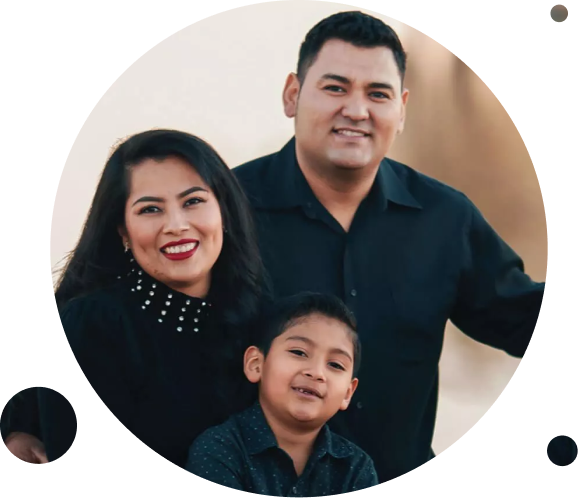There is a lot of guesswork and uncertainty in genealogy research. Many records contain wrong information, mistakes can be made in documents transcriptions, and, of course, there’re misspellings in censuses. What’s more, in the 19th century when publishing family genealogies was a popular thing, many genealogists often relied on legends, gossip, and erroneous family stories. As you can see, there’s a lot of room for human error in genealogy research, and even seasoned genealogists make mistakes once in a while. With this in mind, we’ve asked five genealogy experts to share their genealogy search tips for beginners.
Meet Our Genealogists
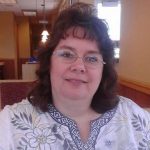 Melissa Barker: Melissa is a Certified Archives Manager, professional genealogist, FGS reviews editor, lecturer, teacher, and writer. Melissa has been involved in genealogy for 30 years and runs a genealogy blog where she shares her valuable experience with other researchers. Connect with Melissa on Twitter.
Melissa Barker: Melissa is a Certified Archives Manager, professional genealogist, FGS reviews editor, lecturer, teacher, and writer. Melissa has been involved in genealogy for 30 years and runs a genealogy blog where she shares her valuable experience with other researchers. Connect with Melissa on Twitter.
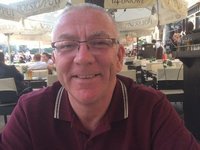
Paul Chiddicks: With 15 years of experience in genealogy, Paul is a blogger with an interest in military history. He runs his own online blog and often features in online genealogy magazines. Connect with Paul on Twitter.
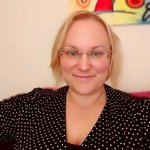 Natalie Pithers: Natalie is a Professional genealogist offering research services. She started her own family tree when she was 18 – that’s almost 20 years ago! She is madly deeply in love with the past and runs her own blog. Natalie is a proud member of the Guild of One-Name Studies and an enthusiastic member of Historians Collaborate. Connect with Natalie on Twitter.
Natalie Pithers: Natalie is a Professional genealogist offering research services. She started her own family tree when she was 18 – that’s almost 20 years ago! She is madly deeply in love with the past and runs her own blog. Natalie is a proud member of the Guild of One-Name Studies and an enthusiastic member of Historians Collaborate. Connect with Natalie on Twitter.
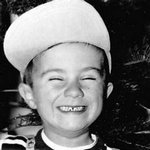 Kenneth R Marks: Kenneth started his genealogy journey as an amateur researcher 18 years ago and gradually turned into obsessed ancestor hunter sharing his considerable knowledge with others. Connect with Kenneth on Twitter.
Kenneth R Marks: Kenneth started his genealogy journey as an amateur researcher 18 years ago and gradually turned into obsessed ancestor hunter sharing his considerable knowledge with others. Connect with Kenneth on Twitter.
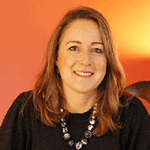 Helen Tovey: Helen is editor of Family Tree Magazine, covering all aspects of genealogy research. Helen has been involved in genealogy since she was a teenager and now she encourages people to do family history research, helping them find answers to the trickiest questions.
Helen Tovey: Helen is editor of Family Tree Magazine, covering all aspects of genealogy research. Helen has been involved in genealogy since she was a teenager and now she encourages people to do family history research, helping them find answers to the trickiest questions.
1. How do you think the understanding of their past can benefit people?
Melissa Barker: Understanding our past can help us understand who we are, who our ancestors were and where we came from.
Paul Chiddicks: I think it can help us understand more who we are today and more importantly where we came from.
Natalie Pithers: I think that understanding the past helps us to avoid making the same mistakes again. Be that on a large scale (wars) or on a small scale (family dynamics). Understanding the past can also help us to understand why we are the way we are now. That’s something that can be very comforting or very challenging!
Kenneth R Marks: It gives us another dimension to our lives, allowing us to understand our ancestors. More importantly, it allows us to make connections with relatives that many times we didn’t know we had.
Helen Tovey: I think it can give people a much stronger foundation to their sense of self – it gives people a richer sense of their roots, the stories, lives, adventures, and tribulations of all sorts of ancestors, not just those of their immediate nuclear family – giving us a long view of history, of the ups and downs, of the opportunities and inspiring perseverance of those who came before.
2. Why did you start genealogy research? Is it your profession or hobby? What made you want to become a genealogist?
Melissa Barker: I started genealogy research because I was curious about my ancestors. At first, it was just a hobby then I decided to turn my avid hobby into a profession and became a professional genealogist. Then I went back to school and became an archivist.
Paul Chiddicks: I class myself as “an enthusiastic amateur”, I am not a professional. Sadly for me, my Dad died when I was just 3 years old, which left a big gap in my life, once I was old enough to ask questions about my Dad and my Family, I just never stopped asking questions.
Kenneth R Marks: Just as a hobby. I started because I was curious. Then I really got into it.
Natalie Pithers: My Mum inspired my love for genealogy. She’d tried to trace our tree, before the days of the internet. I was fascinated by her findings. I continued the research into our tree – and over the years I did the trees of several friends. I wanted to become a genealogist because I love so many aspects of the role. I love the challenge of research, logical thinking and problem-solving. Yet I also love the creativity of writing up the findings, imagining life in the past.
Helen Tovey: I’m not a professional genealogist but I’m lucky enough to have a job in the world of family history – something I’m hugely grateful for.
3. What path led you to transform your interest in genealogical research from a hobby to a career?
Melissa Barker: The reason I became a professional genealogist and made it my career is because I love helping others find their roots. I had so much fun finding my own roots that I wanted to help others do the same.
Paul Chiddicks: I currently only carry out my own research or unpaid work for friends, maybe one day I will take it to the next level. At the moment writing and blogging about my Family is taking up most of my time.
Kenneth R Marks: I wanted to help newer researchers with genealogy search tools and tips that I had discovered that would help others with their research.
Natalie Pithers: I had children! I’d had a full-time career as a contractor in Project Management. I really enjoyed it but I wanted something I could flex around the kids. Genealogy was perfect. I was genuinely passionate about it, found it stretched my brain and many of my project management skills helped with the organisation side (both in terms of running a business and in terms of managing the actual research).

4. Did you just start by asking your family members? Did you start doing any research in libraries?
Melissa Barker: Both! I started by asking as many family members about what they knew and I found out that was much information. So, I turned to libraries, archives, courthouses and anywhere I could find records.
Paul Chiddicks: Asking family members first, record offices came after once I had established the key facts.
Kenneth R Marks: I started by asking my relatives and by performing online searches. Very little has been done in libraries.
Natalie Pithers: My Mum had already completed questionnaires with her side of the family. I started on my Dad’s side by quizzing my grandparents. I did go to the libraries – to access the Birth, Marriage and Death indexes.
5. What is one mistake you often see non-professionals make in their family history research, and how might they correct/avoid it?
Melissa Barker: The one mistake I see non-professionals make is believing everything is online. Being a seasoned genealogist and especially an archivist, I know that the majority of genealogical records are still sitting on shelves in boxes at libraries, archives, historical societies, genealogical societies and other records repositories just waiting to be discovered.
Paul Chiddicks: I write a regular blog for Family Tree Magazine here in the UK and one of my recent blogs was ‘The Top 10 Sins of a Genealogist’. Every single one of these sins/mistakes comes from my own experiences.
Kenneth R Marks: They don’t interview their oldest living relatives immediately.
Natalie Pithers: Not recording sources or conclusions. They think they’ll remember, but it’s amazing how quickly you forget where something was from – or why you concluded a piece of evidence was relevant (or irrelevant).
6. Are there any mistakes you’ve made that you regret about?
Melissa Barker: Yes! I wish I had taken better care to cite my sources for the information I gathered early on when I started doing genealogy research. I have records now that I have no idea where I got them.
Paul Chiddicks: All of them.
Kenneth R Marks: Yes, that I didn’t start 20 years earlier and interviewed my grandmother, who was brilliant and would have known everything about my family.
Natalie Pithers: I recorded sources but not exact citations. So, in the early days, I’d put that I’d discovered a fact in the 1901 census but have no further detail. It meant re-finding documents was difficult.
Helen Tovey: I regret not making recordings of both my grandmothers’ voices. I interviewed them, but just wrote down their quotes, and I’d love to have recorded the sound of their voices too. I also regret that when I started out when I came across something ‘untoward’ that I would often just tell other family members what I’d found. I’ve learnt with time, to be more diplomatic and cautious about what to say and how to say it.
7. What are some of the challenges you typically face while doing research?
Melissa Barker: The challenges I face are not having enough time to work on my own research. Being a professional genealogist, I work more with others’ researches than I do on my own research.
Paul Chiddicks: Time, I still work full time and have a grown-up family, so spare time for Family History is hard to come by.
Kenneth R Marks: None really. There are challenges everywhere in life. Goes with the territory.
Natalie Pithers: Gaps in records and my surname (Pithers) being mistranscribed or misspelled in original records. I have a very long list of all the variants I’ve found!
8. We all reach deadlocks sometimes. Is there anything that stimulates you to keep going?
Melissa Barker: Maybe it’s because I am an archivist working in archives every day but what keeps me going is knowing that records are being found in attics, basements and old buildings all the time and being donated to archives. Families are donating records after their loved ones have passed on a daily basis to archives which contain one-of-a-kind documents and information that has never been known before. This is what keeps me going.
Paul Chiddicks: I think all Genealogists have that ‘never say die’ or ‘never give in’ persona about them, it’s that tenacity that makes us good Genealogist’s.
Kenneth R Marks: Just the desire to find out as much as possible about my ancestors’ life stories.
Natalie Pithers: That burning desire to know the truth. To discover someone and remember them.

9. What are the benefits of hiring a genealogist over trying to research something on your own? At what point do you think a novice should bring in the professionals?
Melissa Barker: The benefit of hiring a professional genealogist is their expertise in their particular area. My area is Tennessee research and if you don’t know much about researching in Tennessee, a professional can be a huge benefit. A novice should bring in the professionals when they feel like they have done all they can do.
Paul Chiddicks: Again I have written a blog on this very topic, the link is here.
Natalie Pithers: Tracing your family tree is time-consuming and there’s so much to learn. Even experts continue to learn all the time. It’s not all fun either. Much as I love it, there is also a lot of data entry. Recording sources, proof statements, workings, research logs, etc.
If you are interested in discovering your ancestors, don’t wait until you ‘have the time’. Life’s too short and you never know what’s going to happen. If you don’t have time, hire a professional.
There’s also so much more that can be discovered in local archives. If you’ve done some online research consider hiring a professional that can visit the archives that are too far away from home.
10. What’s been your best genealogy discovery so far?
Melissa Barker: My best genealogy discovery so far is my 8th great grandfather provided wheat to George Washington’s army during the Revolutionary War.
Paul Chiddicks: This is a very personal and emotional story that I have shared here.
Kenneth R Marks: The discovery of a family still living in Germany that I communicate with regularly, and other “cousins” that I have met. Also, the discovery that several of my ancestors were murdered in the Holocaust.
Natalie Pithers: My Nan claimed that we had French ‘blue blood’. I discovered that my 4 x Great-Grandfather was the illegitimate son of a Reverend. That Reverend was the son of a Baron, and that family line was of French descent. With some suggestions, they may be descended from the Plantagenet line. Richard III was my favourite Shakespeare play so I was very pleased with this discovery.
Helen Tovey: My best discovery so far has been recently finding a living relative at RootsTech. I always love making connections online via my online trees, but it’s so much more special to meet them in person. I don’t have a single discovery in my research that stands out, but I do really enjoy digging deeper into my ancestors’ lives and making sense of them – understanding why they might have made the decisions they did, the difficulties they had to face, and what it was that made them who they are.
11. What’s your source of inspiration?
Melissa Barker: My source of inspiration is my ancestors. Knowing each one of them has a story to tell inspires me to keep digging.
Paul Chiddicks: Fellow Genealogists inspire me every single day, with their individual stories and their generosity and kindness in helping others
Kenneth R Marks: Just the motivation to complete as best as possible my ancestors’ life stories
Natalie Pithers: Everything I do, I wonder – how was this done in the past? What did it feel like? What did my ancestors think about it? Even simple things like making breakfast. I’ll wonder, what did they eat? That curiosity seems to be insatiable and drives me forward to discover as much as I can about our ancestors.
Helen Tovey: The thought of leaving my kids a rich and inspiring record of their ancestors, that helps me to keep organized, and try to gather as many photos and memories as possible. I also love online learning resources – from the digitized records to podcasts and webinars.
12. What advice would you give someone who wants to start their family history research and what tools would you suggest they use?
Melissa Barker: My advice to anyone starting their family history research is to start with yourself. Tell your story first and then move to your parents, grandparents, etc. The tools I would suggest that new genealogists use are a good computer genealogy database to keep up with all the information you gather, take good notes and use those archives records that are not online.
Paul Chiddicks: Ask questions of your elderly Ancestors before it’s too late. I use Family Tree Maker, but whatever you choose treat yourself to some software. Consider taking a DNA test.
Kenneth R Marks: Don’t get hung up on dates as the be-all, end-all to research. Verify that you have the correct individuals in your tree but use newspaper research to discover the stories of your ancestors’ lives.
Natalie Pithers: I’d suggest they ask their family for as much information as possible. That they get a really good ‘how to’ book or do a course. And that they use an offline tree provider, like RootsMagic or Legacy rather than just building on Ancestry. Avoid the hint system until you are confident you are building up your own chain of evidence. Secondly, don’t rely on just one website.
13. Where do you recommend people who are new to genealogy start out? What do you consider “Step 1” in family history research?
Paul Chiddicks: Join a local family history society in the area that your family lived. Also, join as many family history online forums as you can both these are packed full of all sorts of experience and expertise to guide you through the early stages of your research. Most important of all, have fun!!
Kenneth R Marks: Interview your oldest relatives.
Natalie Pithers: Start by ordering the birth and marriage certificates of your oldest known relatives. Then use FreeCEN and FamilySearch to begin looking at census documents. Learn to cross-reference the details between Births, Marriages, Deaths and Census before branching out into more records.
Helen Tovey: This advice is never going to go out of date – do start with yourself, then your parents, and grandparents, working backwards. Make the most of the opportunities to record and share family stories, photos, and memorabilia. These are the close bonds that help us to feel connected – and that feels to me like what’s at the heart of treasuring our roots.

